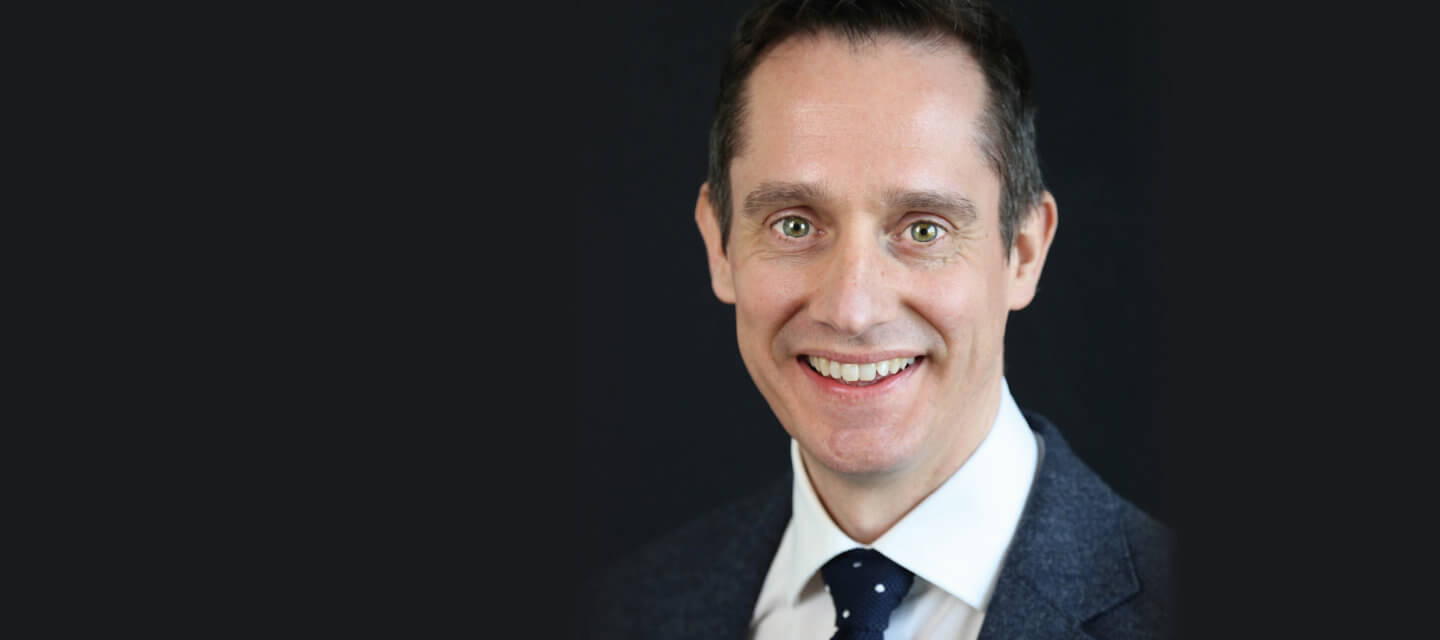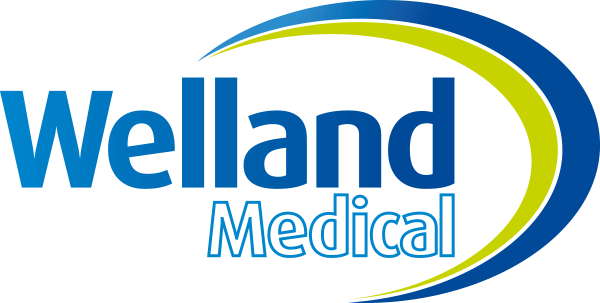
Meet our Finance Director
Mathew Wynn’s career may seem to have veered between two extremes, but look closer and you see that being a navigator in the Royal Navy and steering a company’s financial course are not that different. For both you need to be skilled with numbers, analysis and communicating with your team.
How long have you been at Welland Medical and what path have you taken to reach your current role?
“I’ve been at Welland Medical for 10 years. I started my career as an Officer in the Royal Navy at Dartmouth. At school, my passion was biology and I loved surfing and being in the water, so a degree in marine biology seemed a natural choice.
It was during my final year at university I took what proved to be a decisive step towards my future and walked into the Royal Navy Careers office. I haven’t looked back from that day, as taking the opportunity and working hard to become an Officer in the Royal Navy was the best decision I have ever made. The opportunities for personal development and growth are second to none. You learn a lot about yourself, your capabilities and how to push yourself to be the best you possibly can. During my time in service, I trained as a helicopter navigator and took charge of a warship of almost 200 people – all before the age of 24.
My choice to leave the Navy was a tough one for me, I loved my job however, the role I had trained for was no longer available across the fleet. There were very few options open to me at that time and so I reluctantly left.
Searching for a new career can feel a little overwhelming. Whilst I had built a strong skill set for working with and managing people, this is not always immediately recognised outside of the military. I knew whatever I did I would need to start at the bottom, but I was intent on finding a career I could build on, progress with and be part of a team working and helping others.
I took every opportunity to research options open to me, spoke to friends, family and friends of families to find the right route for me. Following one of these discussions I became aware of an opportunity at an accountancy practice as a Junior Auditor. Two interviews later and I began my accountancy career, earning my ICAEW certification whilst working within three years.
I stayed in practice for just over seven years by which time I had advanced into more senior roles and moved practices to broaden my experience. My interest in auditing had however started to wane, I became more intrigued by how I could help some of the companies I was auditing with their financial accounting. I felt I had more to give and wanted to work from the inside, to know a business intimately so I could advise and influence it.
Always one to rise to a challenge, especially that of my own making, I started looking for a new opportunity. The role for a Finance Manager at Welland came up around the same time I had made the decision to move my work life out of London. I’ve been here just over 10 years, from which I have progressed from Finance Manager to Head of Finance and in 2017, Finance Director. During this time my team has tripled in size.”
What does your day-to-day job cover?
“There’s a lot of variety and one day is rarely like another, but you can break my role down into three areas. There’s the transactional side of things, to ensure the business can function. This includes payroll, costings, supplier payments, budgeting and making sure we have the skills and the infrastructure to do these things.
“Then there’s understanding the business. This involves a lot of time talking to people, having discussions with colleagues, customers and suppliers. I also need to keep up to date with current affairs, industry developments and the wider economic situation.
“Finally, there’s the top-level thinking and decision-making to drive the business forward, then monitoring and assessing how effective these decisions have been and changing course if necessary.”
Are there any skills or knowledge particular to the medical device industry that you need to do your job?
“There’s not much difference working in the medical device industry to any other manufacturing business. Whatever industry you’re in, the very first part of a job is to understand the nuances of the business and the markets it operates in. Once you have that under your belt, you can start to improve processes, which is what I enjoy.
“The one thing that is different in a regulated industry like this one is the reliance on documented processes. While this can be seen as bureaucratic red tape, it can be quite beneficial, and I appreciate them. Having these standard operating procedures might not suit everyone, but it is good practice regardless of industry.”
What is it you enjoy about your role?
“One of the more interesting aspects of my role is when I get to meet our distributors, better understand their business models and how it’s affected by their local economies. Working across global markets I learn a lot from these meetings which also enables me to build better relationships and help inform my financial forecasting and decision making.
Our business model is built on relationships with our customers, through our sales teams, my team, our marketing team and of course Sam (Managing Director) and myself. Once we understand how different customers operate, we can structure contracts and pricing to make them work for us and for them. It is satisfying to be able to work with them long-term and see them grow and succeed in their market because of the work we’ve done together.”
What do you feel are your most valuable personal traits and skills in your role?
Accuracy, reliability, credibility and honesty are – you would hope – a given in accountancy.
Beyond those, I think being personable and able to interact with people at many different levels is my most valuable personality trait. It’s not one you might associate with the stereotyped ‘typical accountant’.
“What really gave me the ability to be better at my job was the Navy and its emphasis on teamwork. It taught me to stay calm and keep a sense of humour too. When you’ve had an enemy shore battery locked onto your ship, it puts the manufacturing fault downstairs into perspective.”
Do you have a particular approach/ethos that guides how you approach your work?
“I think my approach to work can be summarised by the Royal Marines Commando spirit: acting with courage (to get out front and be seen to do it), determination, selflessness and cheerfulness in the face of adversity. That is the core of how I like to behave.”
What advice would you give anyone interested in working in your role in the medical device industry?
“Key to achieving in any role are the skills and knowledge in your field of expertise. For anyone looking for a long-term career in finance it is advantageous to obtain a professional qualification such as ICAEW or CIMA to furnish you with the technical background and credibility you need. I don’t believe university is essential, an apprenticeship can get you there. We have a couple of apprentices working in our team including one directly with me.
When I moved into the medical device industry it was completely new to me. I had the financial background but I did a lot of reading and research into our business and the wider industry. I spoke with all the different teams and spent time on the shop floor and in our warehouse to better understand all aspects of our production and become familiar with what might affect the business, commercial decisions, and limitations.
For anyone new coming into the industry, embrace the challenge! It’s an innovative industry so there is always something new, even for those who started their careers with us so you won’t be alone and for me most importantly, it’s friendly and provides opportunities for all.”

